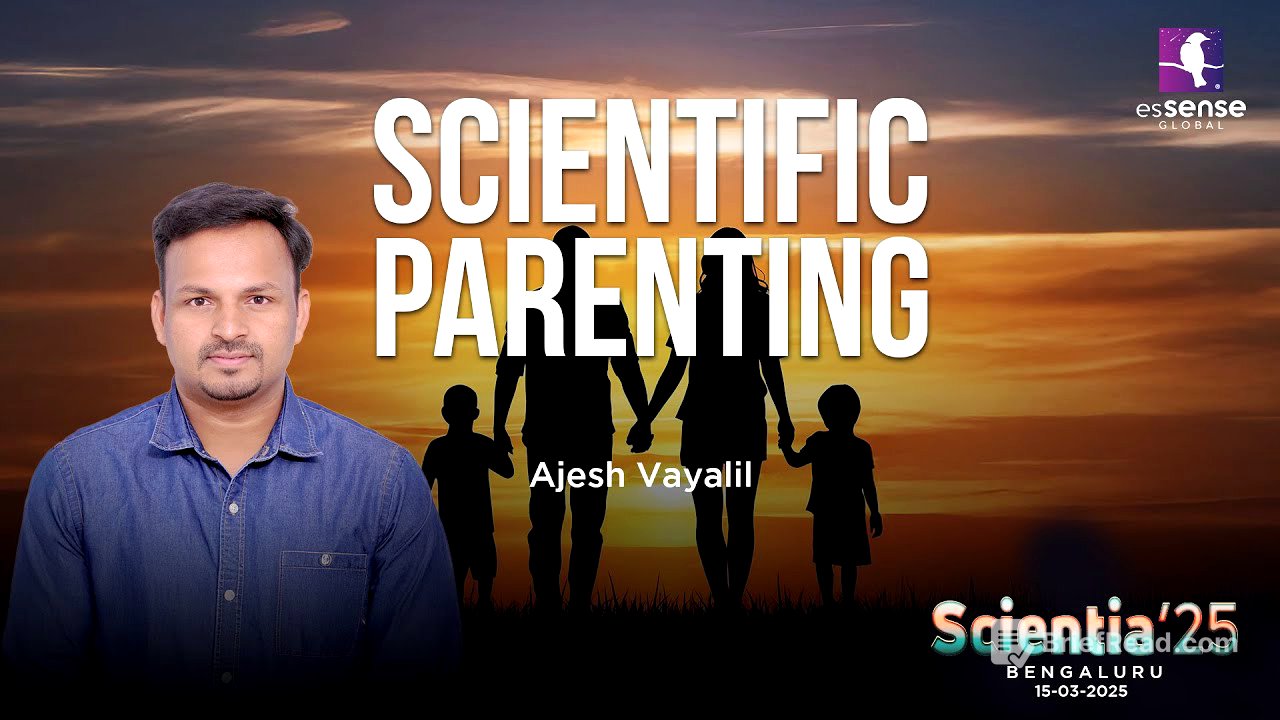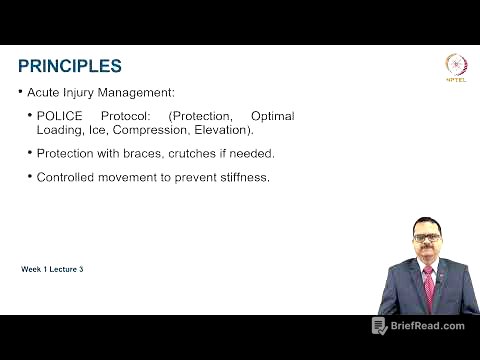TLDR;
This video discusses the concept of "scientific parenting" - an evidence-based approach to raising children that focuses on using rational, scientific methods rather than relying solely on traditional norms or societal opinions. The key points covered include:
- Importance of understanding child development stages and milestones
- Adopting a balanced, consistent parenting style with clear boundaries
- Avoiding "toxic parenting" behaviours that can negatively impact a child's emotional well-being
- Utilising positive reinforcement techniques to encourage good behaviour
- Addressing the root causes behind a child's tantrums or misbehaviour
- Maintaining open communication and a strong parent-child relationship
Introduction to Scientific Parenting [0:22]
The speaker begins by thanking the organisers for the opportunity to present on the topic of "scientific parenting". They explain that this refers to an evidence-based approach to parenting, as opposed to relying solely on traditional norms or societal opinions.
The key reason for discussing this topic is that parenting is one of the most important and rewarding experiences in life. However, many of the parenting practices we follow today may not be the most effective or beneficial for children's development. By adopting a more scientific, rational approach, we can make parenting easier and more enjoyable, while also ensuring the best outcomes for our children.
What is Scientific Parenting? [0:35]
The speaker defines scientific parenting as an approach that relies on scientific evidence and research, rather than just following societal norms or traditions. The goal is to identify effective, evidence-based parenting practices that can help children develop and thrive.
This is important because many of the parenting practices we follow today are not necessarily backed by scientific evidence. Instead, they may be influenced by cultural norms, opinions of others, or outdated beliefs. By adopting a more scientific mindset, we can ensure that our parenting decisions are grounded in research and tailored to the specific needs of our children.
The Importance of Evidence-Based Parenting [0:40]
The speaker emphasises that scientific parenting is about being rational and evidence-based in our approach, rather than simply following traditional practices or societal expectations. This is crucial because children's development and well-being are heavily influenced by the parenting they receive.
By relying on scientific evidence and research, we can make more informed decisions about how to best support our children's physical, emotional, and cognitive growth. This includes understanding child development milestones, providing appropriate nutrition and care, and creating a nurturing, supportive environment.
The speaker also acknowledges that there is still much to learn and improve when it comes to parenting. They encourage parents to be open to new research, learn from their mistakes, and continuously strive to enhance their parenting skills.
Defining Parenting [1:35]
Parenting is defined as the process of caring for and supporting a child from birth until they reach adulthood (18 years old). This includes providing for their physical, emotional, and financial needs, as well as creating a nurturing environment that supports their overall development.
The speaker emphasises that scientific parenting is not about following traditional norms or societal opinions, but rather about using evidence-based practices to ensure the best outcomes for children.
The Importance of Evidence-Based Parenting Practices [1:58]
The key aspect of scientific parenting is the use of evidence-based practices. This means relying on scientific research and data to guide our parenting decisions, rather than simply following cultural norms or societal trends.
By adopting an evidence-based approach, we can ensure that our parenting practices are effective and beneficial for our children's development, regardless of what may be commonly accepted in our society or community.
Overcoming Societal Norms and Traditions [2:03]
The speaker acknowledges that many of the parenting practices we follow today are heavily influenced by societal norms, cultural traditions, and the opinions of others. However, they emphasise that scientific parenting is about moving beyond these influences and focusing on what the research and evidence actually show to be effective.
This may require challenging some of the long-held beliefs and practices that are commonly accepted in our communities. The goal is to identify the most effective, evidence-based approaches to parenting, even if they differ from the traditional norms.
The Importance of Consistent, Rational Parenting [3:12]
The speaker notes that the scientific parenting programme was originally announced in Kannada, but they are now presenting it in English. They explain that the reason for the "scientific parenting" title is to distinguish it from the more traditional, culturally-influenced approaches to parenting.
The key focus of scientific parenting is on using a consistent, rational, and evidence-based approach, rather than simply following the parenting practices of previous generations or societal norms.
Overcoming the Lack of Terminology in Malayalam [3:26]
The speaker acknowledges that there is no direct Malayalam equivalent for the term "parenting", which is why they have used the English term. They note that this lack of a specific Malayalam word for parenting reflects the fact that it is not a widely discussed or emphasised concept in the local culture.
However, the speaker emphasises that parenting is an essential aspect of child-rearing that has been practised for generations, even if the terminology is not as commonly used.
The Traditional Approach to Parenting in India [4:49]
Traditionally in India, parenting responsibilities have been divided, with mothers primarily responsible for the day-to-day care and upbringing of children, while fathers focus more on providing financial support. This division of roles is deeply ingrained in the cultural norms and expectations.
The speaker suggests that this traditional approach may not be the most effective or beneficial, as it can lead to a lack of involvement and shared responsibility between parents. Instead, they advocate for a more collaborative, egalitarian approach to parenting, where both mothers and fathers are actively involved in all aspects of their children's upbringing.
The Importance of Shared Parental Responsibility [6:06]
The speaker emphasises that effective parenting requires a joint effort between both parents, rather than a division of responsibilities along traditional gender lines. They stress that parenting should not be seen as the sole responsibility of the mother, but rather a shared endeavour between the mother and father.
By working together and sharing the parenting duties, both parents can provide a more well-rounded and supportive environment for their children's development. This also helps to avoid the potential pitfalls of "toxic parenting" that can arise when one parent is overburdened or disengaged.
Addressing Common Parenting Challenges [15:12]
The speaker discusses some common parenting challenges, such as dealing with tantrums, managing screen time, and introducing solid foods. They provide evidence-based strategies and recommendations to help parents navigate these situations effectively.
For example, they suggest using positive reinforcement techniques to encourage good behaviour, setting clear boundaries and routines, and being responsive to the child's cues and needs. The key is to approach these challenges in a rational, evidence-based manner, rather than relying solely on traditional practices or societal norms.
Conclusion [47:04]
In conclusion, the speaker emphasises the importance of adopting a scientific, evidence-based approach to parenting. By relying on research and data, rather than just following societal traditions or opinions, parents can make more informed decisions that support their children's overall well-being and development.
The speaker encourages parents to be open to learning, continuously improving their skills, and prioritising the needs of their children. With a rational, collaborative approach to parenting, families can navigate the challenges and joys of raising children more effectively.









